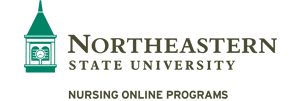A push for systemic change within the healthcare system is creating a growing demand for nurse leaders. Earning a Master of Science in Nursing (MSN) can prepare you to take this crucial step in your career.
For example, the Northeastern State University (NSU) online MSN in Administrative Leadership in Nursing program prepares graduates for high-level positions, such as nursing supervisor, director of nursing and chief nursing officer. With NSU’s online format, students can advance their skills on the job while developing core leadership competencies.
What Are 5 Common Leadership Styles?
Careers in nurse leadership require clinical knowledge and experience. These positions also call for effective leadership skills. The following are five common nurse leadership styles:
- Servant Leadership
Instead of taking a position of power, servant leaders focus on the growth and well-being of each team member. Servant leaders ensure every team member has the resources to succeed. They also encourage employees to use their knowledge to help others grow. The result is a kinder, more inclusive workplace.
The servant leadership approach could be beneficial for reducing nurse turnover. As an SHRM article on servant leadership explains, “employees feel more engaged and purpose-driven, which in turn increases the organization’s retention and lowers turnover costs.” While some situations in healthcare require top-down decision-making, most leadership styles can incorporate aspects of servant leadership.
- Participative Leadership (Democratic Leadership)
An article in Frontiers in Psychology describes participative leadership as a style where “openness and empowerment of employees in the organizational decision-making process are core characteristics that distinguish it from other leadership styles.”
By sharing decision-making power, participative leaders promote a workplace culture where employees at all levels feel valued. Participative leaders should consider whether they are prepared to make decisions without input from others, such as situations involving patient safety.
- Laissez-Faire Leadership (Delegative Leadership)
The “less is more” laissez-faire leader delegates tasks and trusts individuals or teams to make the best decisions moving forward.
This hands-off approach may boost motivation and empower problem-solving. However, novice nurses may want more support than this leadership style often provides. Patient safety issues are also associated with laissez-faire leadership, so leaders employing this strategy must be good delegators.
- Autocratic Leadership (Authoritarian Leadership)
This top-down leadership style involves making decisions with little input from others. Nurse leaders who tend to control decision-making should consider how effective this approach will be, depending on the situation.
For example, an autocratic leadership style may be appropriate in emergencies. However, new nurse managers who use this approach to establish control may create a “toxic” workplace. Autocratic leadership can suppress problem-solving and innovation, diminish morale and invite turnover.
- Transformational Leadership
An article in the journal Healthcare describes transformational leaders as “managers of change.” In addition, the authors note that transformational leaders can inspire confidence and loyalty.
This approach to leadership is associated with increased productivity, improved morale and greater job satisfaction. Professionals generally consider transformational leadership one of the most effective nursing leadership styles, particularly for its impact on patient safety culture.
How Can an MSN Develop Nurse Leaders?
An MSN in nursing administration may be preferred or required for management and administrative roles. NSU’s online MSN in Administrative Leadership in Nursing program prepares graduates at an advanced level in two main areas: professional nursing practice and administrative leadership.
Coursework in professional nursing emphasizes topics such as:
- Research processes and evidence-based practice
- Cultural competency
- Ethical, social and political issues in healthcare
- Current issues and trends in professional nursing
Coursework in administrative leadership develops expertise in areas including:
- Knowledge and skills to effectively manage change, empower others and influence political processes
- Organizational and systems management at the patient, provider and regulatory levels
- Financial resource management
- Human resource management
The demand for medical and health services managers is expected to grow 32% from 2020 to 2030, much faster than the average of 8% for all occupations. This increase translates to about 51,800 job openings for healthcare managers each year.
NSU’s online MSN in Administrative Leadership in Nursing program prepares RNs to help meet the nursing leadership demand. In as few as 12 months, RNs can graduate with the knowledge and skills to pursue vast opportunities. With the growing need for nurse leaders, the sky’s the limit.
Learn more about NSU’s online MSN in Administrative Leadership in Nursing program.


